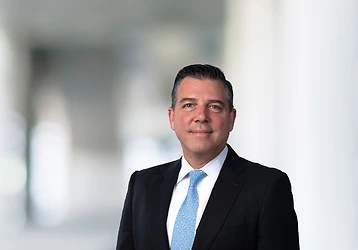Protecting the Attorney-Client Privilege During Corporate Internal Investigations
Earlier this month, the Sixth Circuit delivered an opinion aimed at protecting the attorney client privilege that exists between business entities and the outside counsel they hire. The case was In re First Energy Corporation (Case No. 24-3654) which reinforced and applied the framework from a 1981 Supreme Court decision, Upjohn Co. v. United States, 449 U.S. 383, which addressed similar issues. FirstEnergy asserted two privileges to protect against disclosure—attorney-client privilege and the work product doctrine.
Regarding the attorney-client privilege, the Sixth Circuit emphasized that it is among the oldest and sturdiest protections for clients. It applies to communications made between clients and lawyers when the client requests legal advice. The Sixth Circuit found that the attorney-client privilege applied to the internal investigations conducted by First Energy’s outside counsel and prevented disclosure of outside counsel’s legal findings, analyses, and assessments of FirstEnergy’s potential criminal or civil liability.
Regarding the work product doctrine, the Sixth Circuit also determined that outside counsel’s investigations were covered by the work product doctrine. While attorney-client privilege protects communications, the work product doctrine protects documents that were prepared by counsel in anticipation of litigation. Of course, protected documents must have been created for a legal purpose for the doctrine to apply, and the court made a distinction for those documents—not protected by the doctrine—which were prepared for more routine and/or ordinary business purposes. The work product doctrine ensures that attorneys may prepare their legal theories and develop strategies without fear that the work will be exposed to adversarial parties, absent waiver.
Waiver of those recognized privileges, however, is a very real concern when a company finds itself embroiled in an active criminal investigation and has its own counsel conducting its own internal investigation and reporting its findings to the company along the way. There typically are many who want the results of outside counsel’s investigations: (1) criminal authorities; (2) civil enforcement and/or or regulatory authorities; (3) outside auditors; (4) private civil litigants; and (5) others.
Providing otherwise privileged materials to any one of these outside forces typically does waive the privilege as to all other communications relating to the same subject matter. In re Grand Jury Proceedings, 78 F.3d 251 (6th Cir. 1996) (citations omitted). Since interactions with a company’s outside auditors is a routine occurrence during such internal investigations, the balance of this article will focus there.
The Sixth Circuit did provide some guidance in its opinion regarding how outside counsel must typically interact with the company’s outside independent auditors. While much of what the court stated was already known and understood, it is helpful to have the court’s rationale spelled out in its opinion. First, the court stated that “the disclosure of non-privileged material never waives the attorney-client privilege.” While almost axiomatic, it is helpful because it reinforces how outside counsel can selectively and prudently provide select materials to a company’s outside auditors while at the same time protecting more sensitive materials. Further it ensures that businesses retain the benefits of privilege while being able to maintain normal business operation during times of legal uncertainty.
Second, the court held that a company’s outside independent auditors were not adverse to the company and “[o]nly disclosures to an adversary will waive work-product protection.” Because ethical rules governing public accountants forbid them from “disclos[ing] any confidential client information without the specific consent of the client.” Am. Inst. of Certified Pub. Accts., Code of Pro. Conduct § 1.700.001.01, the Plaintiffs could not prove that FirstEnergy and its auditor were adversaries. The Sixth Circuit concluded that [a]nything divulged to [First Energy’s independent auditor] would therefore, at a minimum, remain protected as work product.”
This is interesting because we now have the Sixth Circuit confirming what we already knew—disclosing non-privileged materials does not lead to a waiver over privileged ones. On top of this confirmation, FirstEnergy is doubly interesting because the court recognized that disclosing privileged materials to an independent auditor does not necessarily waive the privilege as to others. And that rests on the court’s conclusion that an independent auditor is not adverse to the Company it provides auditing services to. The court noted that when an independent auditor risks becoming adverse, professional rules dictate they withdraw from the engagement. American Institute of Certified Public Accountants (AICPA) professional standards, code of professional conduct § 101.08 (2005); United States v. Deloitte LLP, 610 F.3d 129 (D.C. Cir. 2010). By protecting FirstEnergy’s disclosures to its independent auditor, the Sixth Circuit is recognizing the realities of internal investigations and contributing to the further protection of attorney-client privileged materials. Because of the typical onslaught of requests for these privileged materials under these circumstances, the In Re First Energy opinion is a welcome decision for the protection of companies that find themselves embroiled in such circumstances.
While great care must still be taken to always guard against waiver of the attorney-client privilege, we now have at least some additional comfort when we work collaboratively with the company’s independent auditors to achieve the best possible result—under difficult circumstances—for the company client. More opportunities for effective collaboration translates into more opportunities for impactful solutions. This new guidance of the Sixth Circuit paves the way for outside law firms like Butzel Long to obtain positive results for our clients while not interrupting business flow, and protecting our client’s interests, to the greatest extent possible, as we always strive to do.
Our Government Enforcement and Investigations Team has decades of experience conducting internal investigations. Contact one of our team members to learn more about how this ruling may impact your existing or future internal investigations or to evaluate your agreements with independent auditors.
George B. Donnini
313.225.7042
donnini@butzel.com
Joseph E. Richotte
248.258.1407
richotte@butzel.com
Natalia A. Grasso
313.983.7436
grasson@butzel.com













